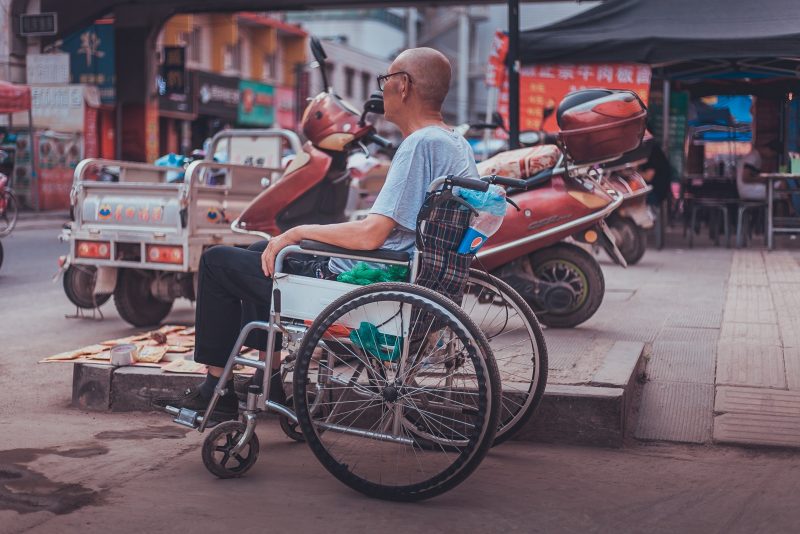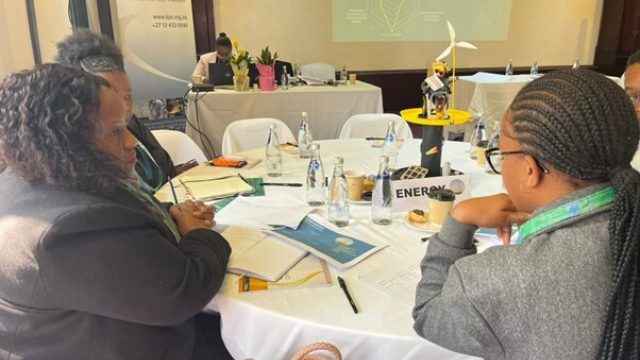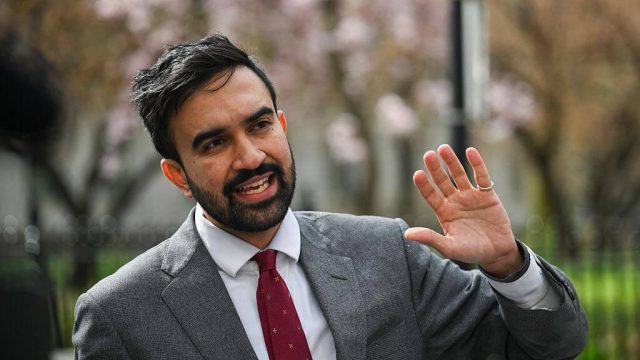Unveiling Eco-Ableism: The Hidden Costs of Green Policies on Disability Communities
Discover the unseen impacts of 'eco-ableism' as green policies collide with the needs of people with disabilities.

Introduction
When well-intentioned green policies go wrong, who bears the costs? Dr Cathy Mungall-Baldwin, a behavioural science and public health consultant and member of our network working group on Disabilities, Intersectionalities, and Eco-Social Contracts, shares her personal experience of how eco-ableism can impact people with disabilities, and what happens when 'eco' and 'social' perspectives aren't considered together by policymakers.
The Unintended Consequences of Green Policies
Leith Shore, my neighbourhood in Edinburgh, won the 2023 Great Neighbourhood Award for best in the UK and Ireland for its heritage and “community spirit”. As a climate change activist with disabilities who advises governments on equitable and climate-smart urban development, I’ve experienced a dark side. In May 2023, a low traffic neighbourhood (LTN) was implemented in Leith by the City of Edinburgh Council (ECC). LTNs aim to reduce car use and encourage ‘active travel’. I awoke in shock to the pedestrianisation of the road outside my flat’s gate, removing pick-up/drop-off access.
Whilst it's crucial to reduce air and noise pollution and road traffic accidents, Transport for All's Pave the Way research survey outlines the negative impacts on people with disabilities (PWD) and older people who cannot walk, cycle or ‘wheel’; or for whom crowded streets or pavements with multimodal active travel cause stress (to autistic people) or who cannot see the changes or hear pedestrians and bicycles. Vital car journeys to access food, medicine, healthcare and social support can be contravened.
Fighting for Disability Rights in Urban Development
As a mobility-impaired, dyslexic recovering from stroke, housebound and asleep in 2022, ECC’s consultation didn’t reach me. No door knocks or contact with Disabled (Blue Badge) drivers; leaflets were accidentally printed in tiny inaccessible font but not reprinted. The ex-ante Integrated Impact Assessment (IIA) lacked data about PWD. No member of Edinburgh Access Panel, who highlighted five generic negative impacts on PWD, resided in Leith. I faced a main road diversion of up to 20 minutes in traffic to park in my building’s underground car park. I couldn’t always manage this, with limited neurological energy.
I spoke to the press, and funded my carer[1] to advocate to ECC as no cash-strapped local advocacy agency could help. In contacting friends and therapists to testify to the mental health effects I suffered, my carer mistakenly stated that we wanted to eradicate the LTN. I rectified this five minutes later, “No, we just want consideration under the UK’s Equality Act 2010,” but one able-bodied ‘friend’ rubbished the sincerity of my climate change work and refused to meet. ECC eventually restored drop-off access outside my gate. As volunteers, we spoke with 11 other PWD struggling with the LTN and related local schemes, and shared their accounts and troubling findings from our ’social model of disability’ analysis of the IIA with ECC and legal organisations.
I briefly had to park illegally until given an exemption but without visual evidence. I received five erroneous parking tickets. Neighbours photographed and ‘shamed’ my car on Facebook and wrote nasty stories about me, a hate crime under local law. Someone anonymously reported me to the driving license agency as unfit to drive. My NHS doctors’ time was wasted writing medical reports although I’d been cleared to drive. ECC refused the visual evidence of my parking exemption until I threatened legal action, my MP intervened, and an ambulance trip to hospital diagnosed ambiguous symptoms as PTSD triggered by these events. Legal organisations told me about apparent legal violations and offered their services.
“ Climate change mitigation schemes designed by able-bodied people prioritise their user needs. PWD are the most negatively impacted by climate change and the least included in decision-making about climate policies.”
Serious social injustices are raised
'Wheeling' - the oversimplification of disability: Mobility impairments vary across a vast spectrum between full-time wheelchair user and slight walking impairments. Not all wheelchair users can ‘wheel’ distances. Upper body impairments, manual wheelchairs/funding/maintenance problems with electric wheelchairs limit this option. Hostile and inaccessible public transport systems pose usage barriers for PWD, e.g. long distances to transport stops, single wheelchair spaces on buses and trains with competition from pushchairs/buggies, negative attitudes towards invisible or variable disabilities, the cold, inability to queue or carry bags, and no seats.
'Ecoableism' - denounced by the UN, Scottish NGOs and a neighbouring local authority: Climate change mitigation schemes designed by able-bodied people prioritise their user needs. PWD are the most negatively impacted by climate change and the least included in decision-making about climate policies. Engineer-led IIAs don’t differentiate between the preferences of able-bodied residents and PWD’s lack of choice over mobility and travel. A sociologist wouldn’t be asked to design a road so why leave welfare issues to an engineer? Due diligence fails when PWD are not directly consulted and key publications ignored. We are guinea pigs in an experiment left to squeal and fight negative access, health, and economic impacts whilst councils slowly apply selective retrospective mitigations. PWD are caught between vilification for essential car use dependence, and the inaccessibility of electric vehicle charging points and unaffordability of electric cars.
Negative attitudes and disability discrimination: There is a culture of entitlement that if PWD have “special privileges”, others should too. The rise of internet trolls has allowed individuals to use online public forums to judge others and win the approval of the mob through accumulating ‘likes’, whether or not their aspersions are grounded in truth, morality or accurate medical knowledge. This spurious moral policing incites this entitlement, making people with unseen and variable disabilities an easy target.
UPDATE:
The battle for my ability to leave my home
In December 2023, after a five-month email battle and an official complaint, the City of Edinburgh Council gave me a sign to place in my car window informing traffic wardens of an official exemption to park near my building. Parking is ordinarily prevented by double yellow lines, yellow pavement-dashes/No loading/Unloading restrictions in place from 08.30am to 6.30pm. Due to the LTN, part of my street was pedestrianised, blocking driving access from the front of my building to the back where the entrance to its underground carpark lies, a pre-LTN walking distance of 82 metres or a one-minute drive. Low cognitive energy can prevent me from driving the new LTN-induced route of a 0.5 mile traffic loop in traffic via two main roads to access the carpark on top of a short local journey. Instead, the sign enabled me to park near my building’s gate in the day, but in the evening after the restrictions ended, I was still competing with other drivers to get a close enough space. I was advised by the chief engineer in charge of Leith LTN to apply for an on-street Disabled Person’s Parking Bay, and was told, given my difficulties, that my application would be looked upon favourably. I applied in March 2024, once a support worker was available.
Criminal damage to my car
On-street parking was not my preferred option given that petty street crime is rife. My building co-residents have seen drug dealing through their windows and eye witness reports to the police have led to prosecutions. I intentionally purchased my flat for its secure indoor parking as well as level access and a lift. In August 2024, I was ill and housebound for two weeks, unable to walk outside, having left my car on the street. A kind neighbour phoned me and police knocked on my door to say that my car’s back windscreen had been decimated by the blunt force of a hammer attack leaving it insecure whilst shattered glass lined the kerb. Without CCTV or witnesses, the police could only record the crime, although they offered to have the earlier hate crime investigated (a difficult decision for a disabled person with the possibility of revenge attacks).
No Disabled Person’s Parking Bay
The windscreen repair cost £390.00, a lot for a self-employed person on long-term sick leave due to stroke. After seven weeks, Council staff responded that it was a police matter only, not acknowledging the obvious connection between the revocation of one-minute access to the carpark entrance, and being forced to park on the street at times of low cognitive energy. Again, I was advised to apply for a Disabled Person’s Parking Bay – an idea that did not mitigate the risk of further criminal damage to my car but may guarantee me a space at night. A carer applied on my behalf. An unannounced man from the council knocked on my door unexpectedly one day to ask where I wanted the parking bay and why I needed it. I explained the problem, but he appeared shocked that a younger-looking person had answered the door, without crutches, on what for me was a “good” day. He told me all the reasons why he did not think it possible and left.
Due to the risk of more unaffordable repairs, I dare not continue to park on my street, leaving me with no choice but to give up leaving the house when I have low cognitive energy – enough to drive for five minutes but not longer. This has prevented me from driving to the GP, nearest supermarket with parking outside the front entrance, petrol station, pharmacy, and my nearest friend’s home for social support. None of my daily carers holds a UK licence and they are paid to daily cook meals only, not drive me around.
In mid-December 2024, I received an email from Edinburgh City Council stating: “Our road inspector has observed that you have private parking 1 minute drive away from the property and within 25 metres of the address. For this reason, I’m afraid we cannot provide a new Disabled Persons Parking Place at this location.” They have repeatedly failed to answer the question of what they expect me to do facing these further restrictions on my ability to leave my home and seem content to ignore the issue. Their last letter concluded: “Unfortunately, the Council would not be in a position to offer any further assistance following the criminal damage to her car”. A newly elected MP took up my case and in March 2025, received a different response: “…there were no suitable locations to install a disabled bay in the vicinity, and this is due to kerb markings being in place on both [X] Street and [X] Place, and a narrow road width on [X] Street. The DPPP team have advised that this would be the case regardless of the LTN road closure.”
Eco-ableism: a convenient blind spot
The convenient blindspot remains: the LTN has robbed me of my ability to drive my car at all times of day and park it safely, thereby enabling me to leave my home. These facts seem impossible for council staff and counsellors to acknowledge in words. It seems I am expected to make these sacrifices as a vulnerable, disabled person, for a project that has increased my incarceration rather than improving my mobility to the outside world. It has cost me more than £1000.00 between carer advocacy costs (in the UK, disability advocates are only available for free for statutory benefit assessments), and car repairs. My only crime: my disabilities that prevent me from embracing the new cycle lane being constructed next to my building in the cold, damp, stormy Scottish climate, enabling the fit to get fitter but leaving the disabled without redress. Eco-ableism is rife and must be challenged before it causes further serious harm.
This blog was published as part of our Global Research & Action Network for a New Eco-Social Contract, a joint project with UN-RISD, supported by funds received from the European Union.


